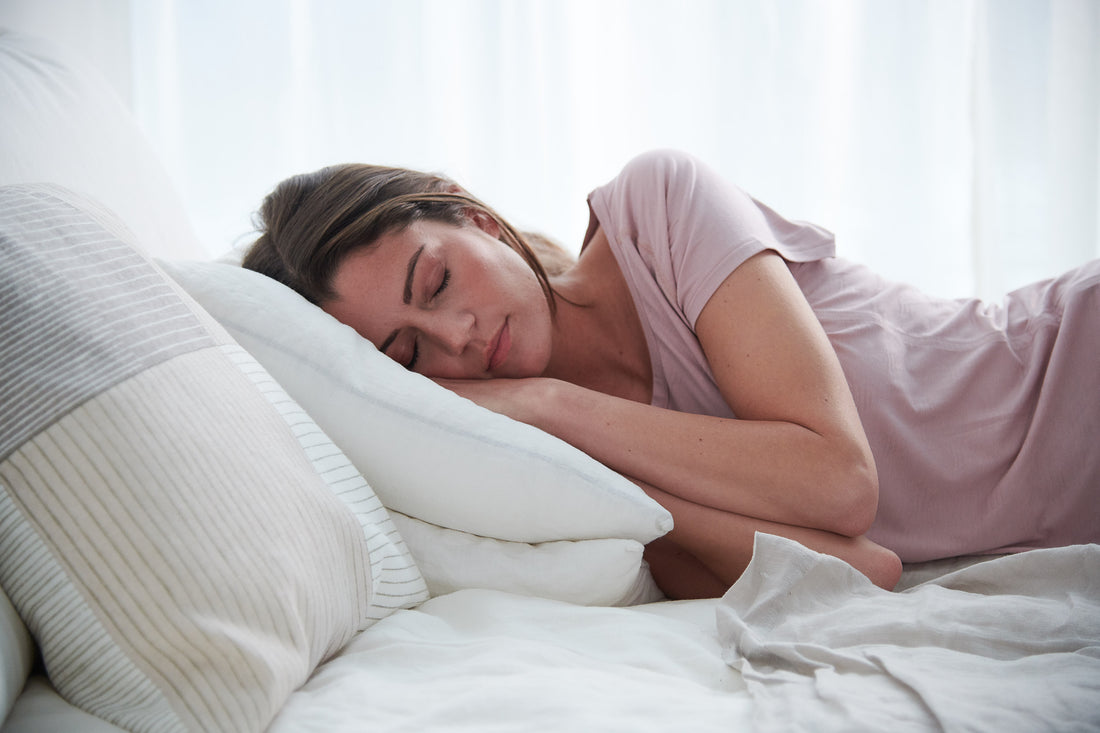
Menopause and sleep problems
HOW DOES MENOPAUSE IMPACT OUR SLEEP?
How much sleep we need and how well we sleep varies throughout our lives. In general we have less of our sleep in the deep sleep phases (slow wave sleep and rem sleep) as we age. There are many factors that impact how well we sleep, menopause is one of those and unfortunately most post-menopausal women are less satisfied with their sleep than before. In an Finnish study scientist from the University of Turku were following 60 women before, during and after menopause.
The study monitored the sleep at 46 years and then again 6 years late, The average result was a decrease of almost 40 minutes in total sleeping time, an increase in the number of awakenings and a decrease in sleep efficiency.
The sleep problems reported before and during menopause are often related to hot flashes but also breathing related sleep problems increase as well as the complaints of menopause insomnia. Snoring is more common and more severe in post-menopausal women and studies have shown that as many as 60% complain of insomnia.
According to the National Sleep Foundation 75-85% of women around menopause are suffering from hot flashes during the night, decreasing their sleep quality.
As Torbjörn Åkerstedt, professor at Stockholm university explains there is still some uncertainty around why exactly this is happening. Many scientists think the decreasing levels of estrogen and other changed hormonal levels trick the hypothalamus (the temperature regulating region of the brain) into thinking that the body is overheating. To cool down our blood vessels dilate and blood flow to the skin increase which result in a flushed and sweaty feeling.
Hot flashes usually start around the face and spread to the chest area, they last for on average 3 minutes. Most women suffer from hot flashes for around a year however a quarter have hot flashes for up to 5 years.
Hot flushes at night can decreases the total sleeping time but even if we sleep through our sleep quality is decreased as our bodies aren’t in the ideal climatic zone during the night. This leads to less time in the critical deep sleep phases.
HOW CAN WE SLEEP BETTER?
Professor Åkerstedt enhances the importance of temperature for our sleep quality, both the room temperature as well as our skin temperature. “You need to have a cold room to inhale cold air to reduce the core body temperature, helping you to fall asleep faster and to enjoy a higher sleep quality”. According to professor Åkersted most people have bedrooms that are far too warm and would benefit from lower the temperature.
Keeping our skin temperature at the right degree is also important, this can be especially challenging during menopause.
According to professor Åkerstedt most pajamas today are still developed for the colder bedrooms of the past and we need to rethink the concept. Totally avoiding sweating can be difficult but we can alleviate the symptoms of hot flashes with the right sleepwear and bedding.
Focus on moisture wicking and breathable sleepwear that help to regulate your temperature and that work as a complement to a cold bedroom. It’s important that your clothing doesn’t become wet as you then will wake up cold instead. Keep a glass of ice water next to your bed and have a cold facecloth available in case you wake up feeling overheated.
If the problem persist it is best to contact your doctor for advice. There are hormonal treatments available with oestrogen and progesterone that have been found to relieve the symptoms of menopause.
Also review your sleep hygiene, making sure that you have a good sleep routine and are aware of how your food, drinks and habits impact your ability to sleep through. Sleeping during menopause can be challenging but there are ways to make it easier!
DISCOVER THE BEST MENOPAUSE PAJAMAS
Dagsmejan Balance has been developed to help with hot flashes and sweating while sleeping. Find out how to sleep better with menopause pajamas.
- 6x more breathable than cotton, keeps your skin 1°C cooler.
- 4 x better at drawing sweat away from the skin
DISCOVER OUR MENOPAUSE PAJAMAS NOW







